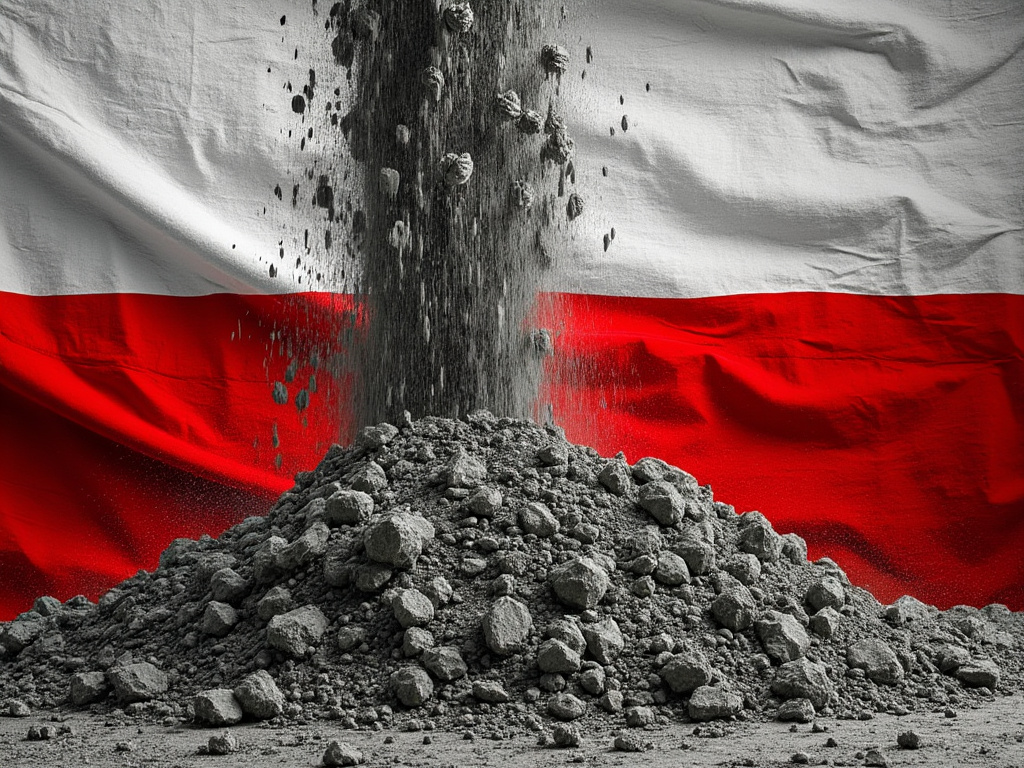Cement imports from Ukraine are an increasing threat to Polish producers, who are calling for the introduction of limits, according to a Puls Biznesu news podcast.
Cement imports from Ukraine to Poland increased by over 1,500 percent in four years (2019-2023), says the portal, with the largest surge just after the war broke out in 2022.
According to data from the Cement Producers Association, 32,000 tons of cement came to Poland from Ukraine in 2020, 52,600 in 2021, 101,700 in 2022, and nearly 340,000 tons in 2023. According to estimates, imports for 2024 will reach well over half a million tons, and next year it could even be 1.5 million.
Puls Biznesu points out that “Ukrainian cement on the Polish market comes mainly from a private cement plant in Ivano-Frankivsk, which sells it through a company established in Poland with branches in Biała Podlaska, Chełm, Zamość, Jarosław and Rzeszów. The Ukrainian cement plant is currently being expanded, and its final production capacity is to reach 4 million tons per year.”
This is not the first time Poland has faced issues with its war-torn neighbor. Despite being a staunch supporter of Ukraine against Putin’s aggression, Poland has struggleed with handling refugees as well as Ukrainian grain being dumped on its market.

Poland has also faced massive issues with hybrid warfare on its border being deployed by Putin-ally, Belarusian President Lukashenko, who has assisted illegal migrants to cross into Poland. In many cases, these migrants have resorted to violence to gain access to Poland, with one Polish border guard ultimately dying in a stabbing attack.
Meanwhile, Poland has been facing continued high inflation and a spike in layoffs, as GDP growth slowed to 2.7 percent year-over-year for the third quarter; seasonally adjusted data reflected a drop of 0.2 percent from the previous quarter, with slow consumer spending being a factor, as well as Germany’s weak economy also hitting manufacturing and exports.
Remix News reported in October that 17 million people, almost half of all Poles, live below the poverty line.
Poverty and extreme poverty are growing due to worsening inflation amid an economic slump.https://t.co/bVGlWzwcNU
— Remix News & Views (@RMXnews) October 17, 2024The latest Purchasing Managers’ Index (PMI) out of S&P Global came in at 48.9 in November 2024, down from 49.2 in October, the first drop in five months, as a decline in new orders and production has once again accelerated.
“The faster drop in new orders and renewed fall in production resulted in the headline PMI falling for the first time in five months. The 12-month outlook deteriorated notably, with confidence at its lowest in nearly two years on concerns over the weak European economy and geopolitical tensions,” the release reads.






